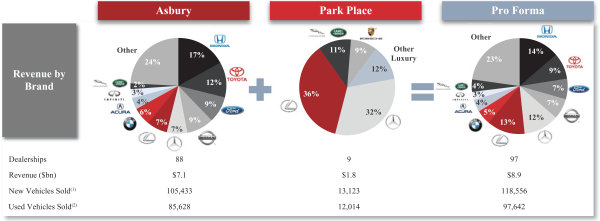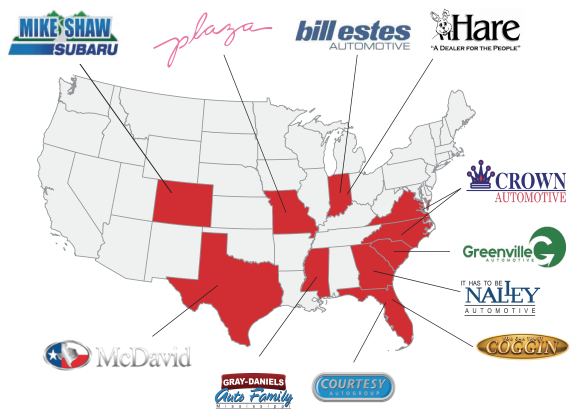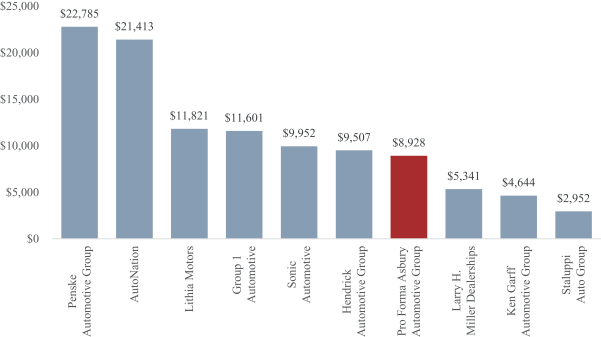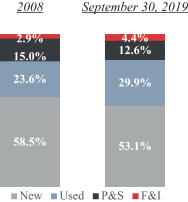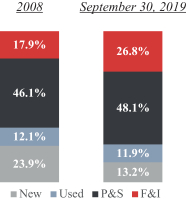Our operations are subject to extensive governmental laws and regulations. If we are found to be in purported violation of or subject to liabilities under any of these laws or regulations, or if new laws or regulations are enacted that adversely affect our operations, our business, results of operations, financial condition, cash flows, reputation and prospects could suffer.
The automotive retail industry, including our facilities and operations, is subject to a wide range of federal, state, and local laws and regulations, such as those relating to motor vehicle sales, retail installment sales, leasing, finance and insurance, marketing, licensing, consumer protection, consumer privacy, escheatment, anti-money laundering, environmental, vehicle emissions and fuel economy, and health and safety. In addition, with respect to employment practices, we are subject to various laws and regulations, including complex federal, state, and local wage and hour and anti-discrimination laws. The violation of the laws or regulations to which we are subject could result in administrative, civil, or criminal sanctions against us, which may include a cease and desist order against the subject operations or even revocation or suspension of our license to operate the subject business, as well as significant fines and penalties. Violation of certain laws and regulations to which we are subject may also subject us to consumer class action or other lawsuits or governmental investigations and adverse publicity. We currently devote significant resources to comply with applicable federal, state, and local regulation of health, safety, environmental, zoning and land use regulations, and we may need to spend additional time, effort, and money to keep our operations and existing or acquired facilities in compliance therewith.
In addition, there is a risk that our employees could engage in misconduct that violates the laws or regulations to which we are subject. It is not always possible to detect or deter employee misconduct, and the precautions we take to detect and prevent this activity may not be effective in all cases. If any of our employees were to engage in misconduct or were to be accused of such misconduct, our business and reputation could be adversely affected.
The Dodd-Frank Act, which was signed into law on July 21, 2010, established the Consumer Financial Protection Bureau (“CFPB”), an independent federal agency funded by the United States Federal Reserve with broad regulatory powers and limited oversight from the United States Congress. Although automotive dealers are generally excluded, the Dodd-Frank Act could lead to additional, indirect regulation of automotive dealers, in particular, their sale and marketing of finance and insurance products, through its regulation of automotive finance companies and other financial institutions. In addition, the CFPB possesses supervisory authority with respect to certainnon-bank lenders, including automotive finance companies, participating in automotive financing. The Dodd-Frank Act also provided the Federal Trade Commission (“FTC”) with new and expanded authority regarding automotive dealers. Since then, the FTC has been gathering information on consumer protection issues through roundtables, public comments and consumer surveys. The FTC may exercise its additional rule-making authority to expand consumer protection regulations relating to the sale, financing and leasing of motor vehicles. In 2014, the FTC implemented an enforcement initiative relating to the advertising practices of automotive dealers. In connection therewith, in May 2016, we signed a consent order with the FTC to settle allegations that in certain instances our advertisements did not adequately disclose information about used vehicles with open safety recalls. Under the consent order, we did not agree to make any payments or admit wrong-doing, but we did agree to make certain disclosures in marketing materials and at the point of sale and comply with certain record-keeping obligations.
Continued pressure from the CFPB, FTC, and other federal agencies could lead to significant changes in the manner that dealers are compensated for arranging customer financing, and while it is difficult to predict how any such changes might impact us, any adverse changes could have a material adverse impact on our finance and insurance business and results of operations. Furthermore, we expect that new laws and regulations, particularly at the federal level, in other areas may be enacted, which could also materially adversely impact our business.
Environmental laws and regulations govern, among other things, discharges into the air and water, storage of petroleum substances and chemicals, the handling and disposal of solid and hazardous wastes, investigation and remediation of contamination. Similar to many of our competitors, we have incurred and expect
48
